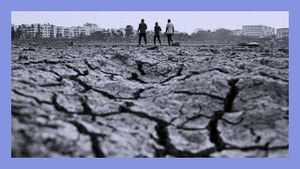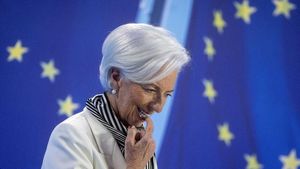Japan prepares to usher in the Year of the Snake, 2025, marked by its unique qualities and significance. According to various cultural sources, including Wolfgang Fanderl, the Year of the Snake, particularly the Wooden Snake, is attributed with traits such as wisdom, elegance, and creativity. These qualities resonate with many individuals and communities, prompting deep reflections as the year concludes.
At the dawn of every New Year, people tend to contemplate what they wish to carry forward and what must change. This year's motto, "Prüft alles und behaltet das Gute" (Test everything and keep the good), taken from Paul's epistle to the Thessalonians, embodies the essence of renewal for many individuals. The transition serves as both motivation and reminder for societies facing turbulence and searching for guidance amid challenges, particularly with the upcoming Bundestagswahl (Federal election) on February 23.
Lately, media outlets have been rife with astrological predictions, contemporary escapism, and curiosities about the future, often sparked by societal insecurities and questions of identity. Karl Marx, the Cardinal of Munich, reinforces the importance of embracing hope and acting against polarization during these reflections. He notes, "Diesen Neuanfang brauchen wir immer wieder. Aber in diesen Zeiten sind wir besonders herausgefordert, diese Neuentdeckung zu machen..." (This new beginning is always needed, but we are particularly challenged to rediscover it during these times).
Through the lens of the zodiac, the snake, which embodies qualities like wisdom, intelligence, and persistence, is reflective of society's need for growth and healing. The symbolism behind the Wooden Snake suggests characteristics of nurturing, empathy, and the potential for personal transformation. These insights might encourage individuals to re-evaluate their past routines and cleave to hope for positive change.
The Year of the Snake presents opportunities not only for personal but also societal growth, as people strengthen their bonds through shared experiences and mutual support. Fanderl explains, "Schenkt man den japanischen Horoskopen Glauben, dann soll das Jahr der Holz-Schlange ein harmonisches Jahr werden..." (If one believes the Japanese horoscopes, then the year of the Wooden Snake should be harmonious...). This harmonious nature calls on individuals to enact goodwill and healing, particularly as they face societal rifts and uncertainties.
Examining the broader cultural significance, there’s recognition of unique milestones, including the 60th birthday, which symbolizes the completion of the zodiacal circle for those born under the Snake sign. This year marks not only transformations on personal levels but also echoes the greater shift necessary within communities—a call for unity and cooperation amid diverse worldviews.
The society finds itself at the intersection of old influences and new aspirations. Notably, Cardinal Marx urges, "Es sind die Pilger der Hoffnung, die die Zukunft gehören..." (It is the pilgrims of hope who will own the future). This statement encapsulates the spirit of the New Year; as communities reflect on the past and stride courageously toward the future, they stand as witnesses to hope against factions driven by fear.
While some retreat to the familiar realms of past traditions or misplaced confidence through superficial trends, this New Year inspires individuals to truly evaluate life choices and potential transformations. The upcoming year invites introspection and proactive engagement, urging one to step beyond the simplicity of mere existence and embrace opportunities for renewal and meaningful change.
Overall, the Year of the Snake encourages not only personal improvement but cultivates the strength of communities. Readers are invited to approach 2025 with open hearts and determination to face both personal challenges and broader societal issues. This New Year—an invitation to reflect deeply, act wisely, and nurture the bonds between one another—will only flourish when met with collective faith and commitment to change.



